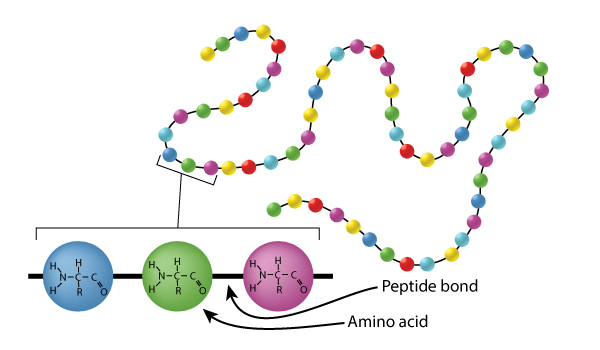
Human body consists of 65% water. 2nd most important component of human body is proteins, at 20%.
While much attention has been given to disadvantages of some form of foods such as fats, sugar, salt, etc. as well as deficiency of some micro-nutrients in human body, the biggest body building food has been consistently neglected by us.
The human body requires proteins for basically two functions:
- Maintenance
- Growth
Simply put, proteins are essential to life. Protein is an important component of all cells and evident in skin, hair, fingernails, bones, blood and cartilage – in fact, it literally holds us together.
Our body also uses it to produce important body proteins like enzymes and hormones.
Many plant proteins are lower in one or more essential amino acids than animal proteins.
Further, bio-availability of plant proteins is lower as compared to animal proteins.
Therefore, vegetarians are at higher risk of protein deficiencies.
According to a survey conducted by IMRB in April 2015, 9 out of 10 Indians had a diet deficient in proteins. This was regardless of the gender and socio-economic groups.
91% of vegetarians have shown protein deficiencies as compared to non-vegetarians at 85%. The report also pointed to a meagre 25% awareness levels among Indians on the need and importance of protein.
Similarly, National Nutrition Monitoring Board (NNMB) report of 2005 states high prevalence of protein deficiency in all Indians. It stated that average intake of proteins in India was 47 gms. Further, protein intake has gone down over last survey, indicating declining state of consumption.
The prevalence of underweight children in India is among the highest in the world, and is nearly double that of Sub Saharan Africa with dire consequences for mortality, mobility, productivity and economic growth.
World Health Organisation (WHO) has published in a recent report that 2.5 million children in India die every single year due to malnutrition. Further, 48% of its children under five years are stunted (low height for age) and 42.5% are underweight. Protein deficiency is one of the biggest cause of mal-nutrition.
National Institute of Nutrition (NIN) states that, severe forms of micro nutrient deficiency like Vitamin A deficiency, Iodine deficiency have significantly decreased though in children, B12 and Vitamin D deficiencies still exist.
Indian diets derive almost 60 % of their protein from cereals with relatively low digestibility and quality.
The protein intake by average Indians look less promising in terms of the protein digestibility corrected amino acid score (PDCAAS), Biological Value (BV) and Protein Efficiency Ratio (PER), where all populations, appear to have an inadequate quality to their protein intake.
On the above basis, foods having best quality of proteins are Milk & Milk Products, Eggs, Fish, Meat, Soya, etc.
However, when taken as whole food there are other issues of ingesting fats, salts, sugars, etc. as well as condition of altered digestibility and satiety before you get adequate amounts depending on individual needs.






0 Comments